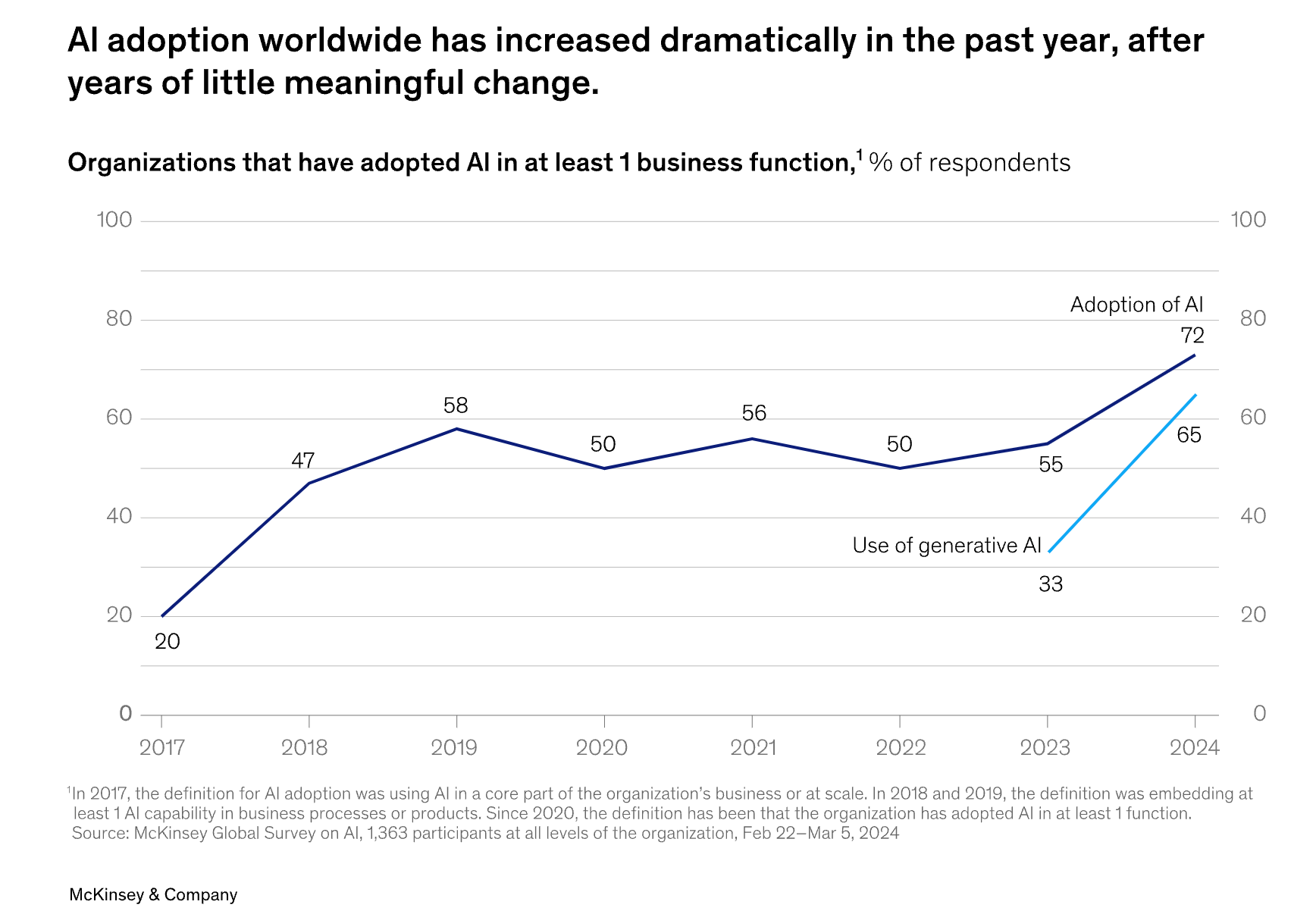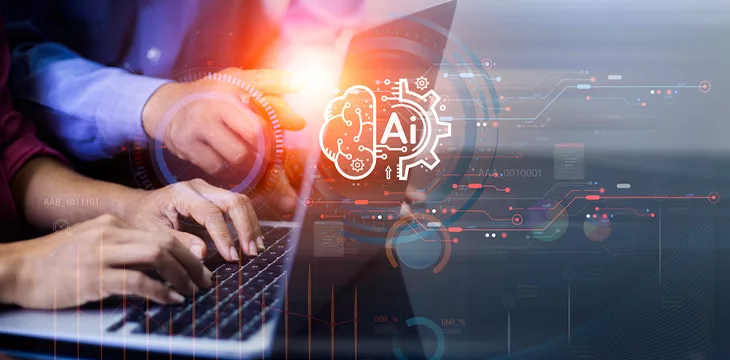|
Getting your Trinity Audio player ready...
|
A new study has found that the adoption of generative artificial intelligence (AGI) in business has doubled this year, with marketing and sales being the most common applications.
The latest McKinsey Global Surveys found that AI adoption has spiked from 55% in August last year to 72%. AGI has recorded the highest rise; this year, 65% of respondents revealed they use AGI in at least one business function, up from 33% last year.
AGI is a subset of AI capable of generating content such as images, text and video in response to prompts, utilizing deep learning from large language models (LLMs). OpenAI’s ChatGPT was the first AGI model to burst onto the scene, and since then, the sector has skyrocketed.

McKinsey found that businesses are increasingly using AI in multiple business functions, with 50% using it in two functions while 27% are using it in at least three.
Businesses prioritize AGI applications in the functions where they can create the most value, the study found. This is often in customer-facing applications where content and data are critical. It found marketing and sales to be the most impacted, with 34% of the respondents reporting AGI use in the sector. Product and service development was second at 23%, with 17% of businesses using it in IT.
Critically, AGI is creating value. The sharp rise in the adoption of the technology has sparked questions on whether the vast investment would yield any returns for deployers.
According to the study, 53% of businesses that integrated AGI in marketing and sales recorded an increase in revenue—for one in five businesses, the growth was over 6%. Human resources had the lowest revenue increase at 33%.
Additionally, technology cuts costs for businesses, with HR being the most impacted—one in six companies using AGI in software engineering slash costs by up to 20%.
With the rising adoption of AGI, concerns about job losses are increasing daily. While projections of millions of job losses by companies like Goldman Sachs (NASDAQ: GS) have been debunked, industry bodies and regulators warn that the technology could disrupt employment dynamics globally.
One study in Australia found that AGI developers have largely ignored the interests of workers and their employers. The study debunked claims that workers oppose AI, stating, “In fact, they see opportunities for improving many parts of their work, especially around reducing the burden of menial, repetitive tasks.”
However, the expertise and experience that these workers can offer in the AI development process has largely been ignored.
In order for artificial intelligence (AI) to work right within the law and thrive in the face of growing challenges, it needs to integrate an enterprise blockchain system that ensures data input quality and ownership—allowing it to keep data safe while also guaranteeing the immutability of data. Check out CoinGeek’s coverage on this emerging tech to learn more why Enterprise blockchain will be the backbone of AI.
Watch: AI is for ‘augmenting’ not replacing the workforce

 02-18-2026
02-18-2026 




